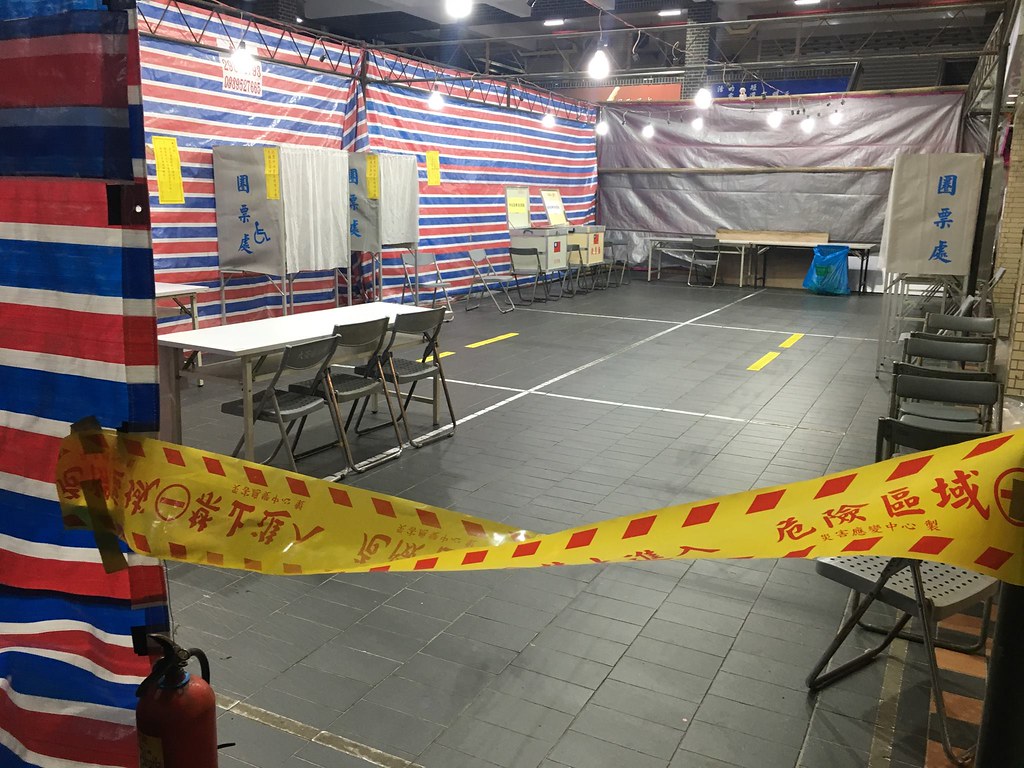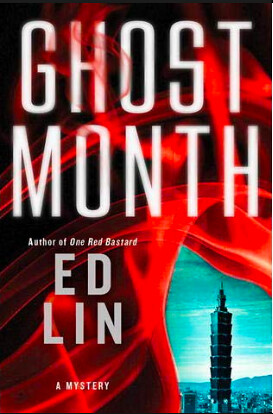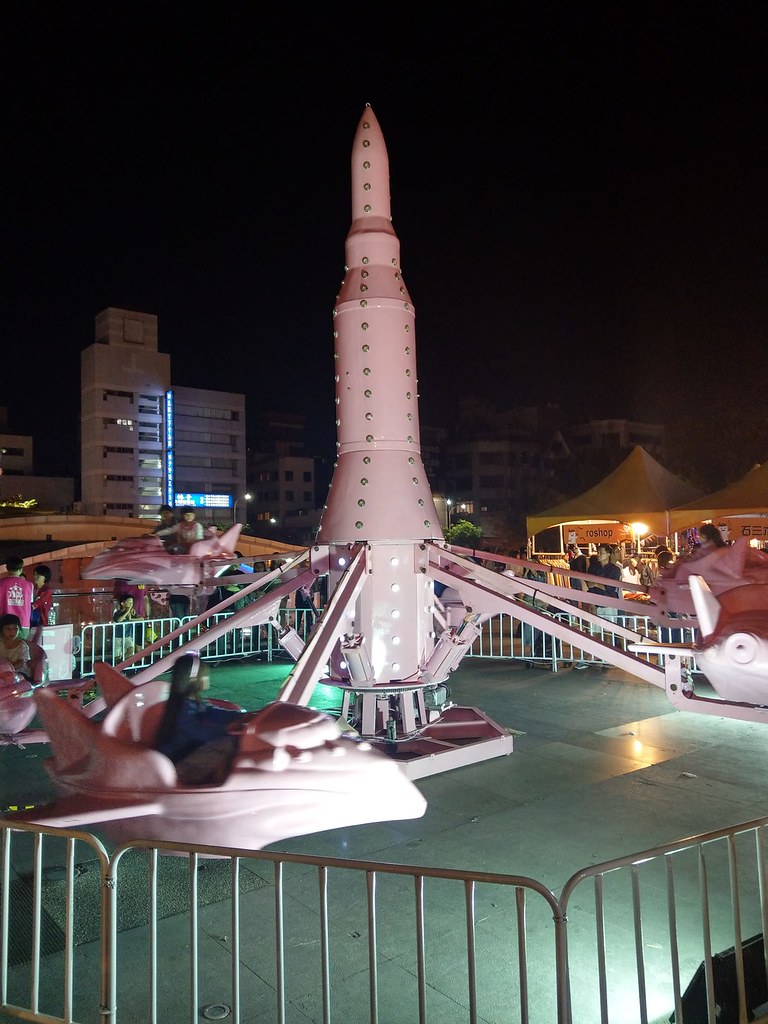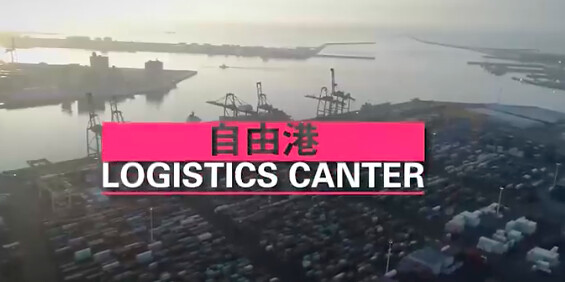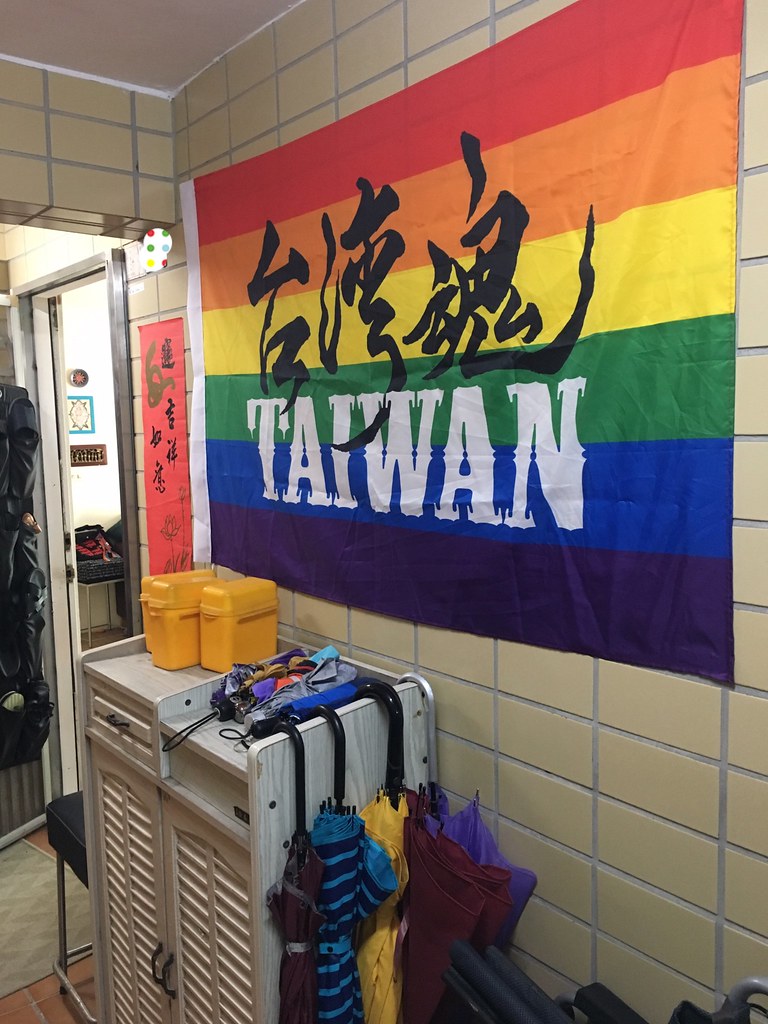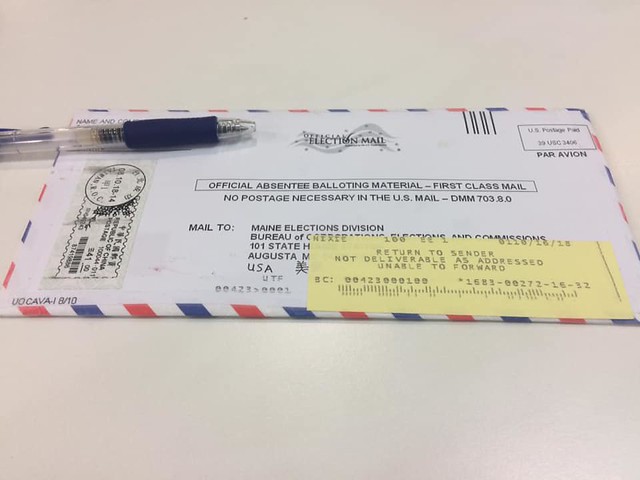I recently decided to switch stylists - my old stylist did a good job with my haircuts (at least once he stopped giving me short bangs), but I wanted to go in a new color direction and, frankly, a change in price points. Around NT$6000 seems reasonable to me for a cut and all-over permanent color with Olaplex, and that's usually about what I pay in US dollars or British pounds when I get it done abroad, if not slightly less (my last cut and color in the US was $170, in the UK I paid £125), so that was what I was looking to start paying.
So after gathering recommendations from friends, I went with Yves Yu Tsui (find her on Facebook as StarletLaDiva - she's very responsive to Facebook messages), who gave me this lovely, current style in my preferred length:
I'd been looking for a color specifically that was bright, but not the very deep violet-toned red I'd been using. It had started to look fake in a bad way (I'd previously liked it because it was bright, and looked fake but in a cool, hip way, like I wasn't trying for natural hair). I wanted a more natural red with coppery, fiery undertones, but which also covered my encroaching gray.
Yves gave me that - a red that hewed toward flame without being orangey - with a bit of base color to ensure the grays got covered. She also put Olaplex into the dye which lessened the time I had to spend in the chair and lowered the price point.
In the past, I'd often have to have my hair gone over twice with dye, because it wasn't left in long enough so it streaked, or was very obviously different on my roots (which I tend to let grow long, though that will have to stop now that I'm really graying because I'm ancient) than my pre-dyed hair. I knew that leaving it in longer helped create a more even color on my difficult hair, and wanted that to consistently be how it was done.
Yves was super great about it, and left the color in my hair almost up to the upper recommendation on the product. The result was that I only had to go through the dye process once, which was like a revelation!
Although it came out slightly darker than I'd wanted, I know hair color is not a perfect science. In any case, I appreciated that Yves warned me in advance that before the first wash it would be on the darker side because of the base color used to cover my gray, but it would turn into the color I wanted shortly. And it did!
I also appreciated that she did the whole thing herself. Generally I find stylists do listen to clients (I don't have a horror story to tell) but I have to say I felt especially listened to by Yves.
The whole thing took less than three hours (I was used to being at the salon longer, but had chalked it up to my difficult-to-dye hair; it turns out that it didn't have to be that way) and cost right around my price point - slightly less, if I remember correctly, which made me amenable to tipping. And the prices are set - there's no awkwardness around being charged more for "extremely long hair" (my hair is merely long, but I'd been charged for "extremely long hair" before) or what hair lengths mean exactly. The price is the price. I like that.
Yves also doesn't try to sell product at the end of the visit. I don't particularly mind being offered a product at the end as sometimes I do want or need them and saying 'no' doesn't make me uncomfortable, but I know a lot of people don't like it when stylists do that, so I figured I'd mention it.
Anyway, go to Yves. You won't regret it!


